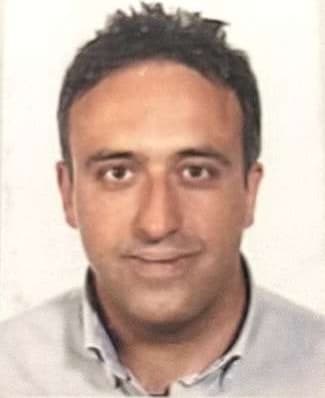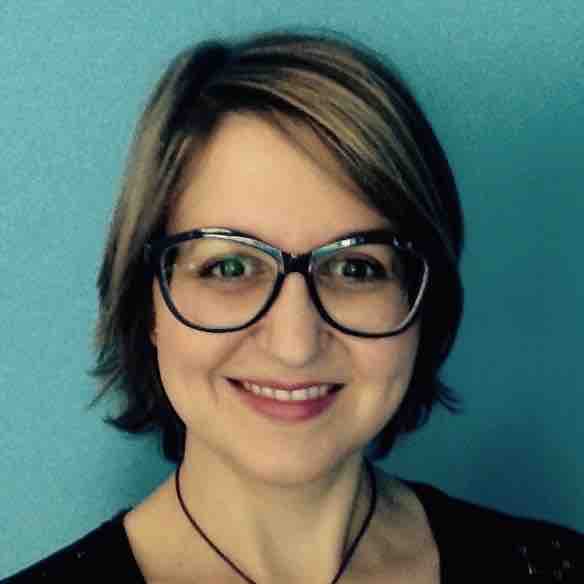Studying at the University of Verona
Here you can find information on the organisational aspects of the Programme, lecture timetables, learning activities and useful contact details for your time at the University, from enrolment to graduation.
Academic calendar
The academic calendar shows the deadlines and scheduled events that are relevant to students, teaching and technical-administrative staff of the University. Public holidays and University closures are also indicated. The academic year normally begins on 1 October each year and ends on 30 September of the following year.
Course calendar
The Academic Calendar sets out the degree programme lecture and exam timetables, as well as the relevant university closure dates..
| Period | From | To |
|---|---|---|
| I semestre (Lingue e letterature straniere) | Sep 27, 2021 | Jan 8, 2022 |
| II semestre (Lingue e letterature straniere) | Feb 14, 2022 | May 28, 2022 |
| Session | From | To |
|---|---|---|
| ESAMI LINGUE - sessione invernale | Jan 10, 2022 | Feb 12, 2022 |
| ESAMI LINGUE - sessione estiva | May 30, 2022 | Jul 23, 2022 |
| ESAMI LINGUE - sessione autunnale | Aug 29, 2022 | Sep 24, 2022 |
| Session | From | To |
|---|---|---|
| LAUREE LINGUE - sessione autunnale (a.a. 2020-2021) | Nov 8, 2021 | Nov 13, 2021 |
| LAUREE LINGUE - sessione straordinaria (a.a. 2020-2021) | Mar 28, 2022 | Apr 2, 2022 |
| LAUREE LINGUE - sessione estiva (a.a. 2021-2022) | Jul 11, 2022 | Jul 16, 2022 |
Exam calendar
Exam dates and rounds are managed by the relevant Foreign Languages and Literatures Teaching and Student Services Unit.
To view all the exam sessions available, please use the Exam dashboard on ESSE3.
If you forgot your login details or have problems logging in, please contact the relevant IT HelpDesk, or check the login details recovery web page.
Should you have any doubts or questions, please check the Enrollment FAQs
Academic staff
 silvia.baroni@univr.it
silvia.baroni@univr.it
 michele.marchesi@univr.it
michele.marchesi@univr.it
 stella.merlin@univr.it
stella.merlin@univr.it
 sara.paolini@univr.it
sara.paolini@univr.it
Study Plan
The Study Plan includes all modules, teaching and learning activities that each student will need to undertake during their time at the University.
Please select your Study Plan based on your enrollment year.
1° Year
| Modules | Credits | TAF | SSD |
|---|
2° Year activated in the A.Y. 2022/2023
| Modules | Credits | TAF | SSD |
|---|
3° Year activated in the A.Y. 2023/2024
| Modules | Credits | TAF | SSD |
|---|
| Modules | Credits | TAF | SSD |
|---|
| Modules | Credits | TAF | SSD |
|---|
| Modules | Credits | TAF | SSD |
|---|
| Modules | Credits | TAF | SSD |
|---|
Legend | Type of training activity (TTA)
TAF (Type of Educational Activity) All courses and activities are classified into different types of educational activities, indicated by a letter.
English literature 2 [Cognomi M-Z] (2022/2023)
Teaching code
4S002927
Teacher
Coordinator
Credits
9
Language
English
Scientific Disciplinary Sector (SSD)
L-LIN/10 - ENGLISH LITERATURE
Period
I semestre (Lingue e letterature straniere) dal Sep 26, 2022 al Dec 23, 2022.
Learning objectives
The module, taught in English, is meant to guide the students through a critical approach to the English Literature of the period going from the Restoration to late Romanticism, especially in relation to a representative range of texts of the canon. Besides, it aims at getting the students familiar with fundamental tools necessary for text analysis and genre criticism. Its overall goal is to provide the students with a good knowledge of the British literature of the set literary period (its historical context, its texts, genres, movements/authors) and of helping them develop skills for analysis, argumentation and exposition in English, in relation to various typologies of literary texts in their historical-cultural context. At the end of the module, students will be able to: - analyze the literary texts set in the syllabus in their historical-cultural contexts; - argumentatively discuss them by taking into account literary conventions and by applying an informed critical approach that is aware of the literary nature of the text; - demonstrate the acquired knowledge and skills, in English and in a clear and consistent way.
Prerequisites and basic notions
English Literature 1, English Language 1
Program
"Romantic landscapes/ Gothich landscapes"
The course will focus on British literature between the 18th and the 19th century, with special reference to the representation of landscape/nature in three canonical texts published in this period: Fragments of Ancient Poetry by Ossian, The Lady of the Lake by Walter Scott and Frankenstein by Mary Shelley.
BIBLIOGRAPHY
PRIMARY TEXTS:
-J. MACPHERSON/OSSIAN, Fragments of Ancient Poetry (1760)
-W. SCOTT, The Lady of the Lake (1810)
-M. SHELLEY, Frankenstein; or the Modern Prometheus (1818)
SECONDARY TEXTS:
-From: The Cambridge Companion to British Romanticism, ed. Stuart Curran:
-Romanticism, criticism and theory
-Romanticism and language
-Romantic poetry
-From: The Edinburgh Companion to Scottish Romanticism ed. Murray Pittock:
-Travel Writing and the Picturesque (Matthew Wickman)
-From: The International Companion to JAMES MACPHERSON AND THE POEMS OF OSSIAN ed. D. Moore:
-Landscape and the Sense of Place in The Poems of Ossian (Sebastian Mitchell)
-From: The Edinburgh Companion to Sir Walter Scott ed. Fiona Robertson:
-The Narrative Poems (Alison Lumsden and Ainsley McIntosh)
-From: The Cambridge Companion to Mary Shelley, ed. Esther Schor
-Making a “monster” (Anne K. Mellor)
To revise notes students are advised to refer to:
-A. SANDERS, The Short History of English Literature, Clarendon Press, chaps 4-6.
Please check the Moodle webclass on a regular basis for additional information and materials.
ADDITIONAL BIBLIOGRAPHY FOR NON-ATTENDING STUDENTS
From: The Cambridge Companion to British Romanticism, ed. Stuart Curran:
-Poetry in an age of revolution (Dawson, P M S)
From: The International Companion to JAMES MACPHERSON AND THE POEMS OF OSSIAN ed. D. Moore:
-Introduction (Dafydd Moore)
From: The Edinburgh Companion to Sir Walter Scott ed. Fiona Robertson:
-Romancing and Romanticism, Fiona Robertson
From: The Cambridge Companion to Mary Shelley, ed. Esther Schor
-Introduction (Esther Schor)
Bibliography
Didactic methods
The course will be taught in the English language.
Students will have to register for the webclass on the e-Learning platform, and check it regularly for updates.
Learning assessment procedures
Oral exam, in the English language
Evaluation criteria
Students will have to demonstrate:
Their ability to express themselves with correct and appropriate language.
Their ability to comment / analyze, even in a simple way, the literary texts discussed in class.
Their ability to summarize, even in a simple way, the critical texts in the reading list.
Understanding and the core knowledge of the topics discussed in class.
Critical thinking and an ability to develop evidence-based arguments will be especially rewarded.
Criteria for the composition of the final grade
The final grade will be based equally on the above criteria. 30 e lode is reserved only for students who demonstrate critical processing skills and ability to develop evidence-based arguments .
Exam language
inglese/English
Type D and Type F activities
Nei piani didattici di ciascun Corso di studio è previsto l’obbligo di conseguire un certo numero di CFU di tipologia D e di tipologia F.
CFU D (attività a scelta dello studente)
I CFU D possono essere acquisiti mediante:
- insegnamenti non obbligatori nel proprio piano didattico (previa approvazione del Presidente del Collegio didattico per insegnamenti non selezionabili in autonomia)
- attività accreditate dal Collegio didattico
- competenze linguistiche (diverse o ulteriori) rispetto a quelle obbligatorie
- tirocini o stage
- TALC (competenze trasversali).
Competenze trasversali TALC
Nota bene: i corsi TALC sono riconosciuti solo come CFU D.
Il numero di CFU D va calcolato complessivamente sull’intero triennio/biennio e non è legato all'annualità.
CFU F
I CFU F sono solitamente relativi ad abilità informatiche, competenze linguistiche, stage e tirocini e ulteriori attività formative accreditate in questa tipologia dal Collegio Didattico.
Nel corso di laurea in Lingue e Letterature Straniere sono previste le seguenti tipologie:
- 3 CFU per terza lingua (livello B1)
- 3 CFU per informatica.
Le competenze informatiche possono essere acquisite attraverso:
- il superamento della prova pratica presso le aule informatiche di Ateneo,
- la frequenza dei corsi attivati da scuole e centri accreditati dall’AICA (Associazione Italiana per l’Informatica e il Calcolo Automatico) o riconosciuti dalla Provincia e dalla Regione e superamento della relativa prova finale. Le domande per il riconoscimento delle competenze informatiche acquisite precedentemente vengono esaminate dalla Commissione per il riconoscimento delle Competenze Informatiche.
Lo studente ha comunque la possibilità di effettuare esperienze di stage e tirocini che però vengono riconosciuti all’interno dei crediti a scelta libera (CFU D).
To discover all the teaching activities accredited by the foreign teaching college click here
Career prospects
Module/Programme news
News for students
There you will find information, resources and services useful during your time at the University (Student’s exam record, your study plan on ESSE3, Distance Learning courses, university email account, office forms, administrative procedures, etc.). You can log into MyUnivr with your GIA login details: only in this way will you be able to receive notification of all the notices from your teachers and your secretariat via email and soon also via the Univr app.
Student login and resources
Gestione carriere
Assegnazione tutore
Attività accreditate D/F
Calendario didattico dettagliato
Cambio lingua curriculare
Competenze informatiche
Competenze linguistiche (prima e seconda lingua)
Competenze linguistiche in triennale (terza lingua CFU F)
Compilazione del piano didattico
Corso di Lingua portoghese
Erasmus+ e altre esperienze all'estero
Linguistic training CLA
Presentazione dei corsi di studio e Open day
Graduation
Saperi minimi
Stage e tirocini
Le attività di stage sono finalizzate a far acquisire allo studente una conoscenza diretta in settori di particolare interesse per l’inserimento nel mondo del lavoro e per l’acquisizione di abilità professionali specifiche.
Le attività di stage sono svolte sotto la diretta responsabilità di un singolo docente presso studi professionali, enti della pubblica amministrazione, aziende accreditate dall’Ateneo veronese.
I crediti maturati in seguito ad attività di stage saranno attribuiti secondo quanto disposto nel dettaglio dal “Regolamento d’Ateneo per il riconoscimento dei crediti maturati negli stage universitari” vigente.
- Tutte le informazioni in merito agli stage per futuri studenti sono disponibili alla pagina Stage e tirocini.
- Tutte le informazioni in merito agli stage per studenti iscritti sono pubblicate in MyUnivr - come fare per - stage e tirocini.
- Tutte le informazioni in merito agli stage per le aziende sono disponili alla pagina Stage e tirocini per azienze.
Ulteriori informazioni al seguente link https://www.univr.it/it/i-nostri-servizi/gestione-carriere-studenti-lingue-e-letterature-straniere/stage-e-tirocini-lingue-e-letterature-straniere

 +39 045802 8409
+39 045802 8409
















































